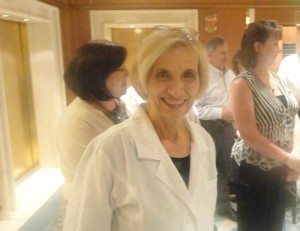+++++++++++++++++++++++++++++++++++++++++++++++++++
WHAT’S NEW!
News from Medical Research about Cancer…
Multiple clinical studies indicate that metformin is associated with decreased incidence of cancer in diabetics, but also a better outcome in cancer patients
There are currently more than 100 ongoing or upcoming clinical studies assessing the role of metformin in the therapy cancer.
For More Information See:
- Help for Problems with Balance and a Risk of Falling
The brain’s processing speed can be more important than leg strength when predicting whether or not older adults will fall. Training visual processing, the useful field of view, and brain speed made positive changes in physical outcomes. Studies indicate that there is a relationship between brain speed and balance.
For More Information See: It also has other articles and abstracts.
https://www.sciencedaily.com/releases/2016/12/161221090359.htm
- Did You Ever Wonder Why It’s Easy for Some People to Learn Languages?
Your ability to learn a new language may be influenced by brain wiring. People who learn languages better appear to have more aligned nerve fibers in two regions in the right hemisphere. The right seems to be involved in pitch perception. Researchers are interested in studying whether neurofeedback or other techniques can prepare them to learn a language more efficiently. This information may eventually help improve language-learning capabilities.
For More Information See:
https://www.scientificamerican.com/article/some-people-rsquo-s-brains-are-wired-for-languages/
- A Groundbreaking Study May Help People with Dyslexia
John Gabrieli at MIT suggests that the brains of children and adults with dyslexia are less “plastic” (less adaptable) than the brains of those without dyslexia. They needed to reprocess information each time. The lack of neural plasticity may manifest most when it comes to reading because of the amount of thinking and learning it requires. Researchers are hoping to discover potential treatments—which might include behavioral exercises for young children to help their brains learn to adapt, or possibly medicines that could help increase brain plasticity.
For More Information See:
- Pregnancy Changes a Mother’s Brain Structure
Researchers from the Universitat Autonoma de Barcelona and IMIM revealed how pregnancy causes long-lasting alterations in brain structure, probably related to improving the mother’s ability to protect and interact with the child. The research was published inNature Neuroscience.
For More Information See:
Universitat Autònoma de Barcelona. “Pregnancy leads to changes in the mother’s brain.” ScienceDaily. ScienceDaily, 19 December 2016. <www.sciencedaily.com/releases/2016/12/161219115224.htm
https://www.sciencedaily.com/releases/2016/12/161219115224.htm
- Are You Interested in Fossils and Plants?
It appears that two fossils of a newly discovered species of tomatillo that are 52 million years old
“This is an outstanding advancement in our understanding of the history of the tomato and potato family,”j Steven R. Manchester, a curator of paleobotany at the Florida Museum of Natural History in Gainesville. The fossils clearly showed that the nightshade family existed 52 million years ago.
For More Information: See:
https://www.nytimes.com/2017/01/09/science/tomatillo-fossils-nightshade.html
![]()


